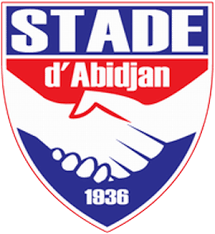Dortmund Football Club, commonly known as Borussia Dortmund, has etched its name in the annals of football history through remarkable achievements, passionate fan support, and an indomitable spirit. This illustrious club from Germany’s Ruhr area exemplifies a legacy that transcends mere statistics and trophies; it embodies the very essence of dedication, teamwork, and community. In exploring the depth of the Dortmund Football Club’s influence on both the Bundesliga and international football, one can appreciate how this institution continues to shape the beautiful game https://rr88.football/
The Roots of Borussia Dortmund
The foundation of any enduring legacy often lies in its origins. Borussia Dortmund was founded in 1909 by a group of young men in the local Catholic Youth, who sought to create a space where they could play football freely. Over the years, the club has evolved significantly, mirroring the broader changes in German society and football itself.
The Early Years and Establishing a Football Identity
In its early years, Dortmund Football Club had a modest presence in regional competitions. However, the passion for the sport within the community began to flourish, leading to increased participation and support.
The early 20th century saw Borussia Dortmund engaging more seriously with national leagues, slowly carving out a reputation within German football. Most importantly, these formative years instilled a sense of identity among players and fans alike—a sense of belonging to something larger than themselves.
As World War I disrupted sporting activities, the club faced an existential challenge. Yet, the post-war period marked a renaissance for many clubs, including Dortmund, which began to attract talent and develop its infrastructure.
The Rise to Prominence
Dortmund’s first major success came in the late 1920s when they won the German championship. This victory was not just a milestone for the club but a turning point that solidified their status in German football.
The 1930s were characterized by adversity due to the rise of the Nazi regime, affecting various aspects of life in Germany, including sports. Despite these challenges, Borussia Dortmund continued to fight for prominence on the pitch. They would eventually find their footing again in post-war Germany.
This period also saw the establishment of a fierce rivalry with Schalke 04, another team from the Ruhr Valley, setting the stage for what would become one of the most intense derbies in football—The Revierderby.
The Formation of a Community
Throughout its history, Borussia Dortmund has fostered a spirit of unity within the surrounding community. The supporters of the Dortmund Football Club, lovingly known as the “Yellow Wall,” have created an atmosphere that is unmatched in world football.
These devoted fans contribute not only to the club financially but also emotionally. Their unwavering support during tough times has made Borussia Dortmund not just a football club but a symbol of resilience. The integration of local culture and pride has been crucial to the club’s identity.





